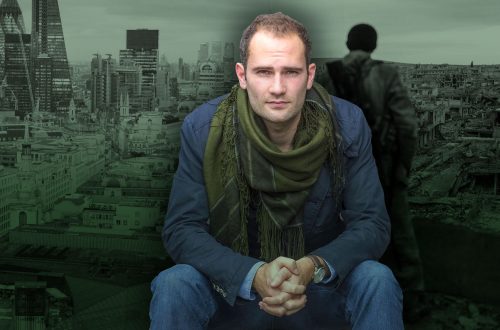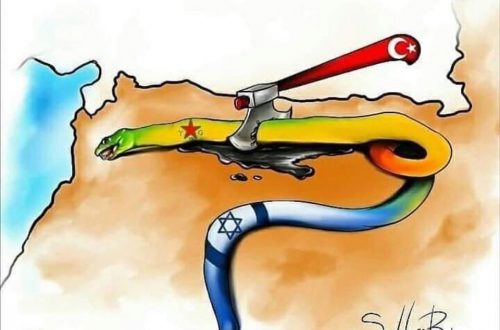If you’re looking for something to celebrate in these troubled days, here it is:
Jubilant Kurdish fighters ousted Islamic State militants from the key Syrian border town of Kobani on Monday after a four-month battle — a significant victory for both the Kurds and the U.S.-led coalition.
The Kurds raised their flag on a hill that once flew the Islamic State group’s black banner. On Kobani’s war-ravaged streets, gunmen fired in the air in celebration, male and female fighters embraced, and troops danced in their baggy uniforms.
The failure to capture Kobani was a major blow to the extremists whose hopes for an easy victory dissolved into a costly siege under withering airstrikes by coalition forces and an assault by the Kurdish militia.
For the U.S. and its partners, Kobani became a strategic prize, especially after they increased the number of airstrikes against IS fighters there in October.
“Daesh gambled on Kobani and lost,” said senior Kurdish official Idriss Nassan, using the Arabic acronym for the Islamic State group.
Here’s a tweet from the Kurdish Democratic Party:
We are proud to declare the city of #Kobane fully liberated!
#TwitterKurds #ISIS #Syria #Rojava #YPG #Kurdistan
— PYD (@pydinfo) January 26, 2015
Here are photos of Kurdish YPG fighters celebrating their victory:
#Kobani: Historical moments: #YPG fighters celebrate victory in Kanya Kurdan area, Historical day! #TwiiterKurds pic.twitter.com/fNHeV1IFfY
— jack Shahine (@jackshahine) January 26, 2015
Here’s a video of the celebrations:
And here are fighters from the anti-Assad Free Syrian Army who fought alongside the YPG to defeat IS:
It occurs to me that one way of countering Islamic State propaganda and recruitment in the West is the widest possible distribution of photos and videos of the female fighters who helped defeat IS– living proof that not only is IS losing, it is losing to women who will fight and die rather than submit to the forced marriage and sexual slavery which IS claims is its right.
Worthy of note is that the Kurdish fighters in Syria have recently taken on Assad’s forces as well.
Syrian Kurds, who say they suffered years of marginalisation under Assad, had on occasion fought with the president’s loyalists in territorial disputes, but never in sustained clashes.
Kurdish activists posted photos showing smoking rising from buildings and YPG fighters raising the Syrian Kurdistan flag in areas said to be taken from government forces.
Finally, those who sympathize with the YPG may be interested to learn that they are not just fighting against IS; they are fighting for something as well: something called democratic confederalism– an idea strongly influenced by the writings of one Murray Bookchin, a New York-born Jewish anarchist and libertarian socialist.
In 2012, Syrian forces withdrew from three northern areas, leaving their administration and defense to the Kurdish Freedom Movement. Now the three territories hold more than four million people, half of them refugees from the Syrian civil war or the Islamic State’s advance, and many of them armed and organized. Kobane is one of the three territories that together constitute the autonomous region of Rojava, and it endures today because of the fiercely egalitarian society the people have built, the kind idealized by many leftists around the world.
And it’s happening in a remote corner of the Middle East. Read about it here.
How it will all work out in the end I don’t pretend to know. As a stodgy old social democrat, I suppose I should be skeptical.
But anyone who was moved by George Orwell’s description of Barcelona at the beginning of the Spanish Civil War (in Homage to Catalonia) ought to feel a sense of solidarity:
Human beings were behaving as human beings and not as cogs in the capitalist machine.
…..
There was much in this that I did not understand, in some ways I did not not even like it, but I recognized it immediately as a state of affairs worth fighting for.


